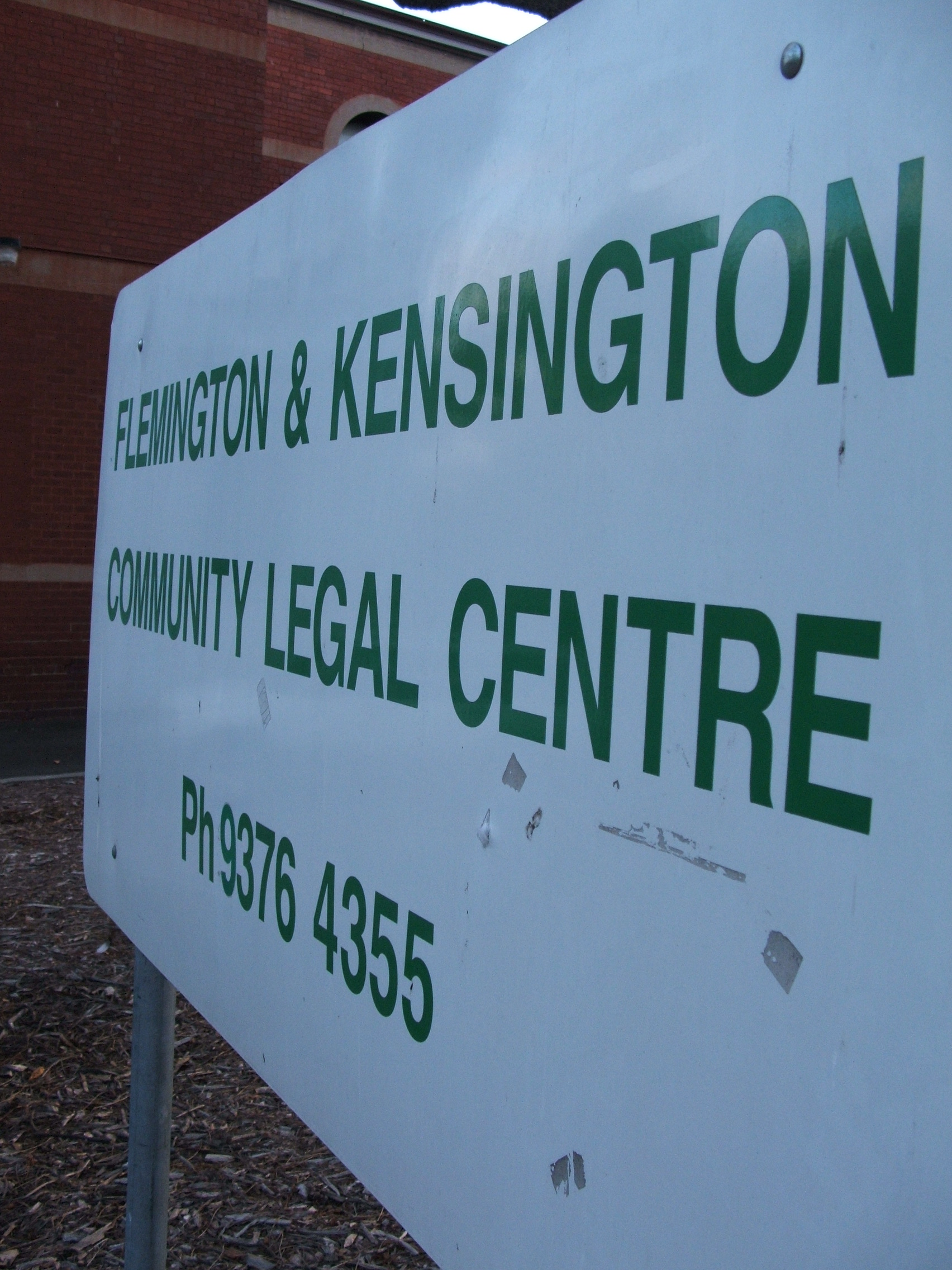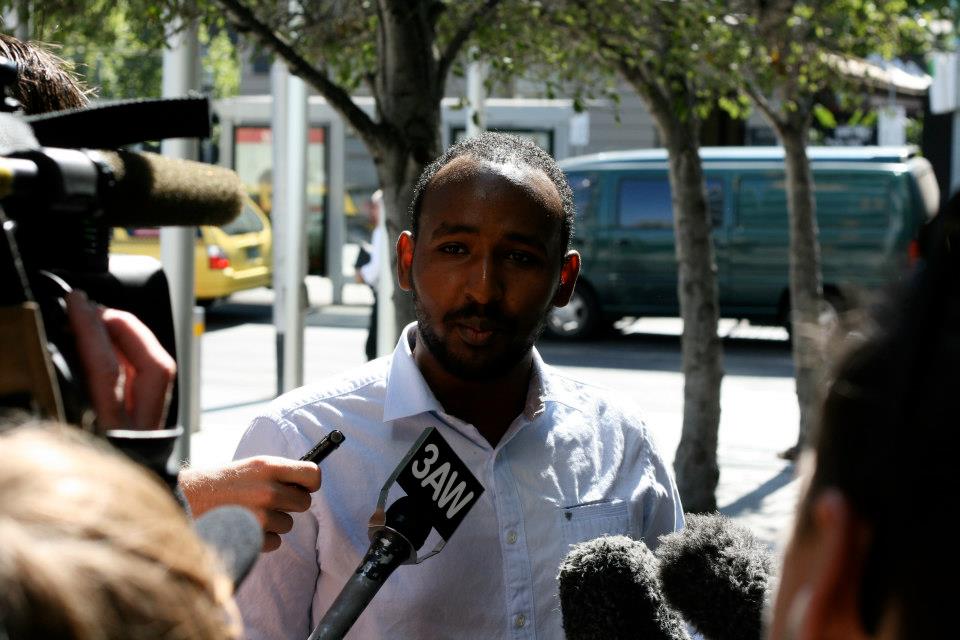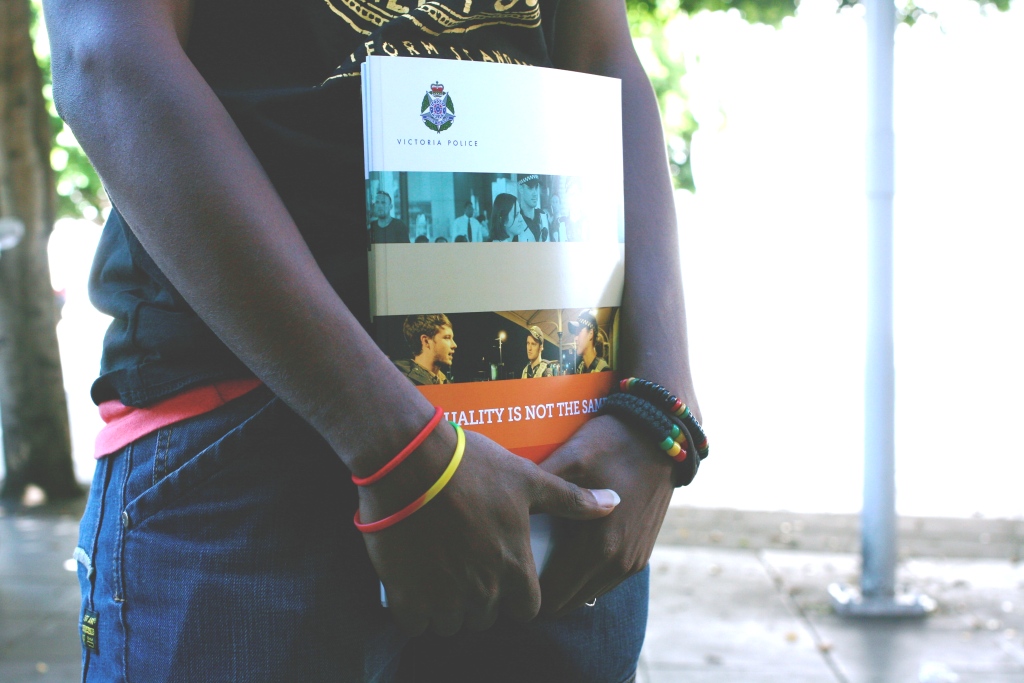Reports of police brutality, excessive use of force and human rights abuses are not new in Victoria.
Since their inception in the late 1970’s, Community Legal Centres throughout Victoria have received a constant stream of reports about excessive use of force and other human rights violations. In response to the ongoing reports, the Police Issues Working Group of the Federation of Community Legal Centres formed in 1983 to work collectively on the human tragedy these reports represent.
Along with other centres, police accountability has been a central concern of the Flemington & Kensington Community Legal Centre since its inception in 1980.
Police Shootings Campaign
Between 1987-1989 eleven people were shot dead by police in Victoria. The families of four of those killed lived or had close connections to the Flemington & Kensington area.
In response to the killings, the Flemington & Kensington Community Legal Centre commenced a community based campaign that saw it working closely with the families of the four deceased to support them through the coronial inquests that followed the deaths and to expose abuse and systemic failures in police actions and procedures.
‘Listen to Me’ education kit
In 1993, together with the Flemington police station, Melbourne City Council and Debney Park Secondary College, the Legal Centre collaborated to produce an education kit and video training package for young people and police called “Listen To Me”.
This project was initiated following concerns about the breakdown in relationship between police and young people in the area. Following release of the “Listen to Me Kit”, in 1993, complaints against police entered a low period. However complaints made to the Legal Centre rose again in each of 1995, 1996 and 1997.
Racialised Policing
From around October 2005, the Flemington & Kensington Community Legal Centre received a huge number of reports of human rights abuses against African and Afghani Australians in the Flemington and surrounding regions.
Police behaviour reported to the legal centre included assaults requiring hospitalisation of victims, punitive beatings of handcuffed or otherwise restrained people, unlawful imprisonment, acts of torture and brutality within police stations, excessive use of force, unlawful searches, threats of sexual violence, unjustified use of capsicum spray, strip searches conducted after such threats are made, searches in unjustified and humiliating circumstances, racist and sexist comments, thefts of money and mobile phones, loss of vehicles, harassment, degrading and humiliating conduct and ill-treatment against racial and religious minorities. In some of the reports, children as young as 10 have been assaulted and mothers sprayed with capsicum spray.
People have reported being told by police to “get back to Africa,” “go home”, “we won’t stop till you are locked up”, you are a “terrorist”, a “monkey” and your Qu’ran is “shit”.
During 2006 the Legal Centre had submitted 17 complaints to the OPI based on the instructions by people to staff at the Legal Centre about police treatment of young people in the Flemington region. By 2013 over 30 complaints had been made to either the Office of Police Integrity (OPI) or Victoria Police. Some of these complaints were the subject of the later court action and the racial discrimination claim in the Federal Court.
In 2006 the Legal Centre won the Tim McCoy award for its work in getting the voices of young people’s experience of police mistreatment in Flemington and North Melbourne out to the world.
Policing of Protest
Also in 2006, the Legal Centre organised and ran the G20 Legal Advice line in the lead up to and during the large G20 protest event held in November 2006. Callers to this 24-hour line were provided with basic legal advice by solicitors and subsequently referred to Western Suburbs CLC, Fitzroy Legal Centre, St Kilda Legal Centre and Rob Stary & Associates for ongoing legal assistance.
This continued a long history of support for the protection of protest rights and the scrutiny of public order policing in Victoria.
A video about the centre and police accountability
The Police Accountability Project
In the beginning of the 2007 and in response to the large number of complaints concerning police mistreatment reported by our clients, the Legal Centre commenced a “Bringing Human Rights in Police Practice” Project. The Project aims to work through a number of interwoven legal, law reform and community development strategies.
The introduction in Victoria of the Human Rights and Responsibilities Charter Act provided further impetus to the project.
This project later became the Police Accountability Project
See: About the Police Accountability Project
2013 Race Discrimination Case
Haile-Michael v Konstantinidis was settled in the Federal Court of Australia on Monday 18th February 2013 with a landmark agreement for Victoria police to publicly review its training and ‘field contact’ practises.
The agreement provided internal documents discovered during the lead up to the case and research commissioned specifically for the applicants to be publicly released. Read more
The Victoria Police Inquiry into racial profiling 2013
This six month inquiry in 2013 was the first of its kind held by Victoria Police.
The inquiry and community consultation was the result of a settlement between six courageous young men and Victoria Police as part of the Haile-Michael Federal race discrimination action.
Individuals, organisations and agencies affected by racially discriminatory policing made a total of 70 submissions to the consultation. Ten of these are available for viewing via the Victoria police website here.
The Legal Centre and law Firm Arnold Bloch Liebler made a comprehensive 132-page submission that sets out the key strategies required for genuine change and compliance with human rights and is available here.
An overwhelming majority of the community submissions called for significant changes in Victoria Police field contact practices and to current training programs. All of the submissions viewed by us have clearly recommended stop and search receipting to be introduced with data collection and monitoring along with enhanced and specific anti-racism and racial profiling training.
In discussing the inquiry Chief Commissioner Ken Lay was quoted as saying: “This is almost a new start for us. Never before have the Victoria Police consulted so widely with the community about the way we engage.”
‘Equality is not the same’ Report
On 30 December 2013 Victoria Police released the report from the 2013 inquiry into racial profiling and launched a 3 year action plan to address community concerns about discriminatory policing and racial profiling.
The Equality Report has committed Victoria Police to adopt many key community recommendations including Australia’s first trial of stop and search receipting, monitoring of who is being stopped by police, policy reforms concerning police field contacts, and substantial reform of cross cultural training provided within Victoria Police.
The report contained many crucial acknowledgements and commitments that, if properly implemented, could see a genuine reduction in racism and racial profiling by Victoria Police members as well as increasing the overall fairness of and human rights compliance by police members.
The report represents a potential watershed moment for Victoria Police in addressing many of the concerns raised by impacted communities who experience racial profiling. Not since Operation Beacon has such potential for change in policing practices been seen in Victoria.
Although the Equality report was weak on acknowledgement of entrenched racism within Victoria Police, it needs to be seen alongside the two consultant reports. The three reports form a road map and point to the huge amount of work ahead for the Victoria Police, the Victorian Government and the community.
The future
This centre remains committed to listen to and advocate for victims of racially discriminatory policing and police misconduct. We will continue to bring these hidden stories into the public sphere, take action on their behalf and ensure that any reforms committed to by Victoria Police are informed by these experiences.
The Police Accountability Project continues to assist individual complainants who may have a civil claim against police. We continue our work to address what are systemic problems of racism, violence and over policing in Victoria and Australia.
As a result of its experiences with the complaint system we continue to call for the implementation of a fully independent, adequately resourced police complaint, investigation and disciplinary system.
See more at: Independent Investigations



